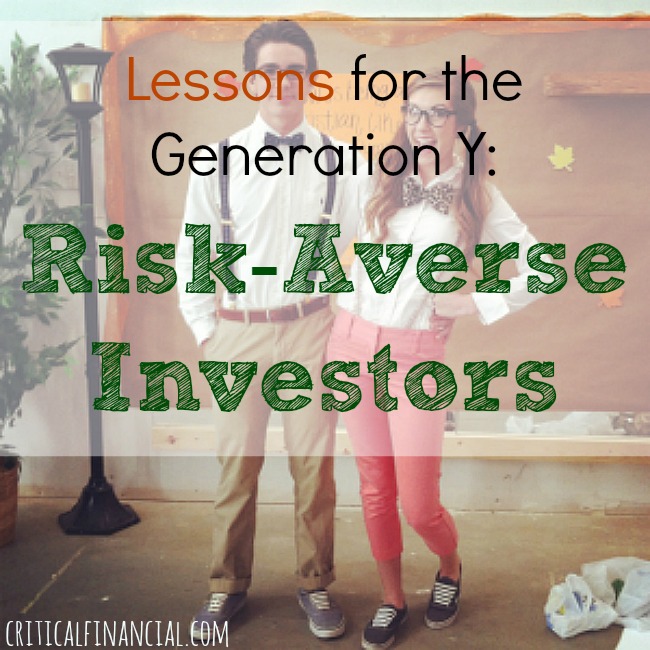
Gen Y or Millennials is a sector of individuals that are tagged as the ‘digital natives’. These are fresh-faced 20- or 30-somethings that just got out of college or grad school, and are out for the first job offer in the market. Most of them are deep in student debt at an average of $22,000 per individual. They keep up swiftly with the changes in the digital world and are adaptable to flexible work places. Those who do not have a regular job after college will probably go freelancing. They do not care about the regularity of the workplace as long as they can get their ideas across and get the job done.
Generation Y workforce are very cautious when it comes to investing the stock market. After witnessing the downfall of the stock market in 2000 and recently in 2008, we will need to coax the Generation Y population to invest their paycheck in the stock market. They have seen their parents lose money in the stocks, and the common mentality is using their money in their living and savings after paying for the amortization in their debt. In fact, 40% of these 18- to 30-year-olds say they will never—never—feel comfortable investing in the stock market, according to a survey by MFS Investment Management. Also, lesser Gen Y investors claim they are willing to take big financial risks than Generation X investors, who were born a decade before them, or their parents, who were born in the 1950s and ’60s, according to a study by the Investment Company Institute (ICI).
In managing the Generation Y population, we tend to forget that they have fears of the stock market crash etched in their head as they were growing up. They tend to shun stocks and prefer dealing with immediate needs such as housing, car, etc. What the millennials miss is that the market is in an entirely different period today. Instead of dodging stocks, they should really start to think about making their money work for them. Here are a few more investing lessons for the Generation Y population:
Think about the long term.
An important investment philosophy for Generation Y is start investing now for wealth accumulation. If they start putting their savings into the stock market now, they have 30-40 years to ride the ups and down of the market; that’s plenty of time to rebound from market downturns. The only risk they have is inflation eating up their investment, but still, they have nothing to lose if they start small today.
Do your own research.
Many of the Gen Y population avoid the stock market due to fear of insufficient information and conflicting investment recommendations available through stock brokers or the Internet. Generation Y investors should do their own research on their investment options. They should feel comfortable where they put their money. Generation Y are young investors who are insecure about their finances from paycheck to paycheck let alone their retirement. In order to appease the growing anxiety and fear of the stock market, they need reliable information channels that will educate them in investing.
Retirement funds do not keep up with inflation. Stocks do.
Vanguard Group just rolled out a target-date fund for 18- to 20-year-olds, the tail end of Generation Y. It is currently composed of 90% stocks (63% U.S. and 27% international) and 10% bonds. By 2060, the approximate year these investors will retire, the fund will be invested half in stocks and half in bonds.
In the Vanguard-run 401(k)s that offer target-date funds, younger plan participants have more stocks in their accounts than similar-aged participants in plans without such funds. Across all its plans, the average equity allocation of 20-year-old employees has risen to 85% from a low of 41% in 2003.
According to data from Baltimore-based fund shop T. Rowe Price, if one saver puts away $500 a month from ages 21 to 30 and enjoys a 7 percent annual return, she will end up with almost a million bucks at age 65. That handily beats another saver who waits for that level of return until age 31 yet contributes all the way to 65, despite putting up $150,000 more than the first investor.

